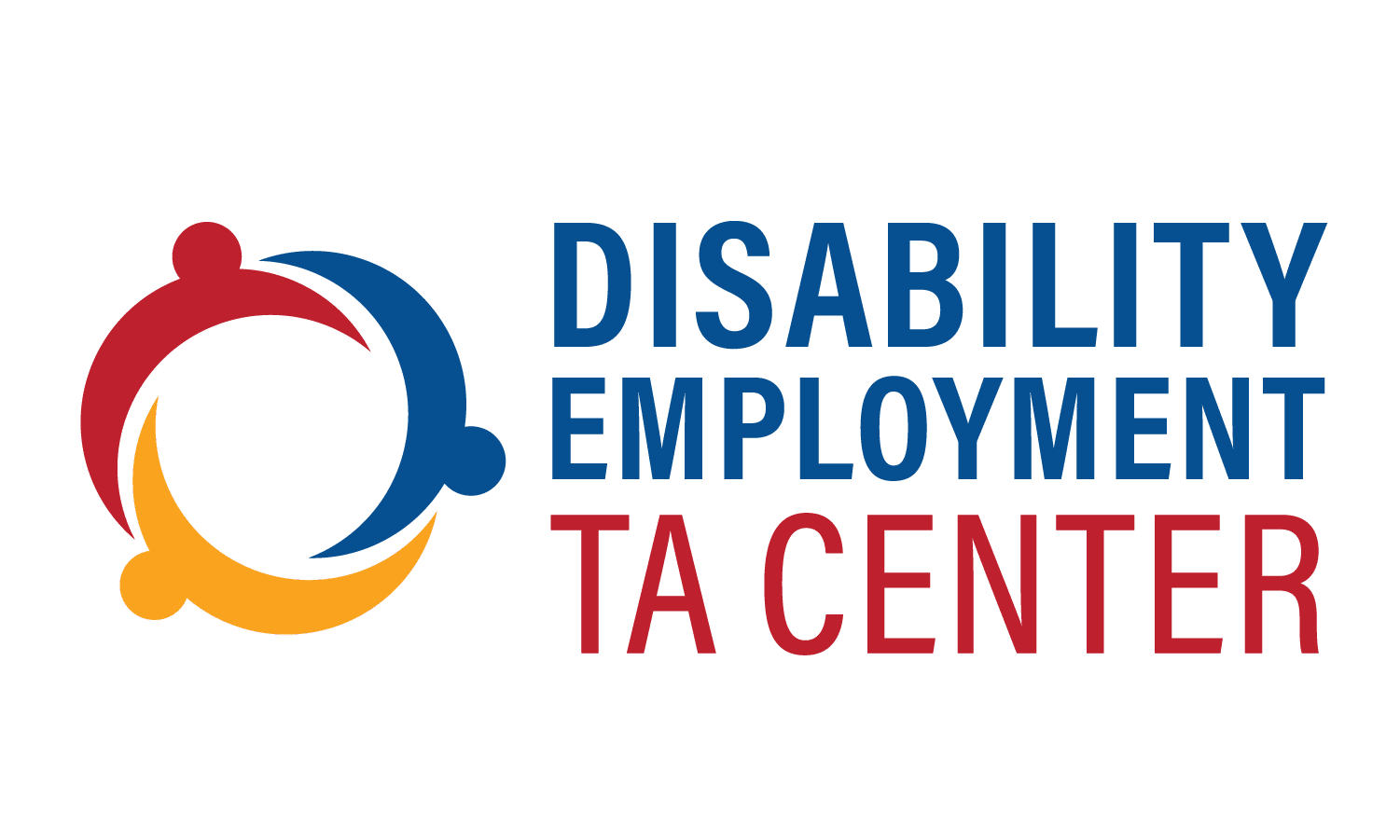AoD National TA Partners
The National Disability Employment TA Center is committed to working with the following AoD national TA partners to assure continuity in TA provision around employment and economic advancement of individuals with disabilities.
The Association of University Centers on Disabilities (AUCD)
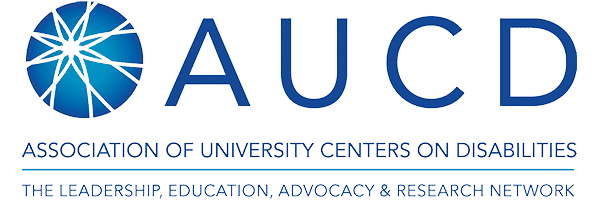
The Association of University Centers on Disabilities (AUCD) is a membership organization that supports and promotes a national network of university-based interdisciplinary programs. Network members consist of:
- 67 University Centers for Excellence in Developmental Disabilities (UCEDD), receiving core funding from the Office on Intellectual and Developmental Disabilities (OIDD)
- 52 Leadership Education in Neurodevelopmental Disabilities (LEND) Programs receiving core funding from the Maternal and Child Health Bureau (MCHB)
- 14 Intellectual and Developmental Disability Research Centers (IDDRC), receiving core funding from the Eunice Kennedy Shriver National Institute for Child Health and Development (NICHD)
These programs serve and are located in every U.S. state and territory and are all part of universities or medical centers. They serve as a bridge between the university and the community, bringing together the resources of both to achieve meaningful change. Through its members, AUCD is a resource for local, state, national, and international agencies, organizations, and policy makers concerned about people living with developmental and other disabilities and their families. Members engage in a range of interdisciplinary activities including exemplary services for children, adults, and families; academic training; basic and applied research; training and technical assistance to schools, communities, and all levels of government; policy advocacy; program evaluation; dissemination of best practices and new information.
Association of Programs of Rural Independent Living (APRIL)
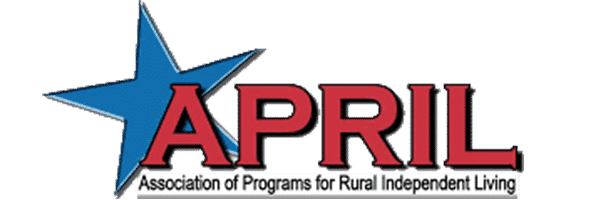
The Association of Programs for Rural Independent Living (APRIL) is a national grassroots, nonprofit membership organization consisting of over 260 members from centers for independent living, their satellites and branch offices, statewide independent living councils, other organizations and individuals concerned with the independent living issues of people with disabilities living in rural America. It provides leadership and resources on rural independent living. As a national membership organization, APRIL is dedicated to advancing the rights and responsibilities of people with disabilities in rural America by serving as a center of resources and by leading systems change.
The National Association of Councils on Developmental Disabilities (NACDD)
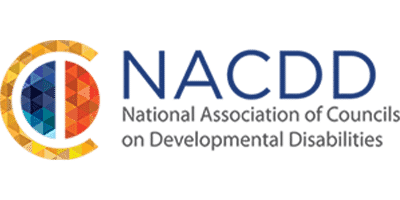
NACDD is the national association for the 56 Councils on Developmental Disabilities (DD Councils) across the United States and its territories. The DD Councils receive federal funding to support programs that promote self-determination, integration and inclusion for all people in the United States with developmental disabilities. The role of NACDD:
- To provide technical assistance to all DD Councils
- To advocate for the national public policy agenda
- To advocate for DD Councils’ appropriations in Congress
- To convene DD Councils for leadership and development training
The National Council on Independent Living (NCIL)
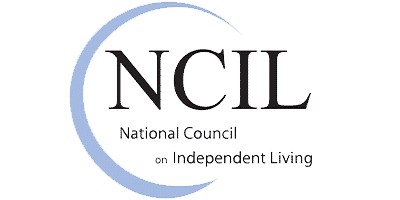
NCIL advances independent living and the rights of people with disabilities. NCIL envisions a world in which people with disabilities are valued equally and participate fully. It is the longest-running national cross-disability, grassroots organization run by and for people with disabilities. Founded in 1982, NCIL represents thousands of organizations and individuals including: individuals with disabilities, Centers for Independent Living (CILs), Statewide Independent Living Councils (SILCs), and other organizations that advocate for the human and civil rights of people with disabilities throughout the United States.
National Disability Rights Network (NDRN)
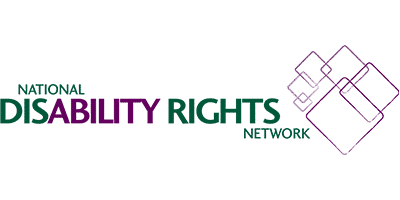
The National Disability Rights Network (NDRN) is the nonprofit membership organization for the federally mandated Protection and Advocacy (P&A) Systems and the Client Assistance Programs (CAP) for individuals with disabilities. As the national membership association for the P&A/CAP network, NDRN has aggressively sought federal support for advocacy on behalf of people with disabilities, and expanded P&A programs from a narrow initial focus on the institutional care provided to people with intellectual disabilities in facilities to include advocacy services for all people with disabilities no matter the type or nature of their disability.
P&As and CAPs work to improve the lives of people with disabilities by guarding against abuse; advocating for basic rights; and ensuring access and accountability in health care, education, employment, housing, transportation, voting, and within the juvenile and criminal justice systems.
National Association of State Head Injury Administrators (NASHIA)
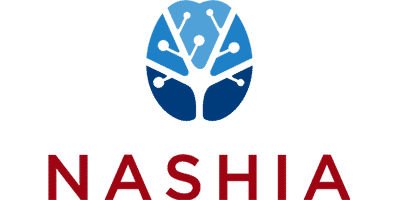
Since 1990, NASHIA has been fulfilling its mission of assisting State government in promoting partnerships and building systems to meet the needs of individuals with brain injury and their families. Serving as the leading source of information and education for state employees who support public brain injury programs, NASHIA provides information on national trends, best practices, and state contacts to federal agencies, state and national associations and TBI stakeholders across the country. NASHIA provides technical assistance to state governments and their partners as well as collective representation on federal policy issues through its membership.
Independent Living Research Utilization (ILRU)
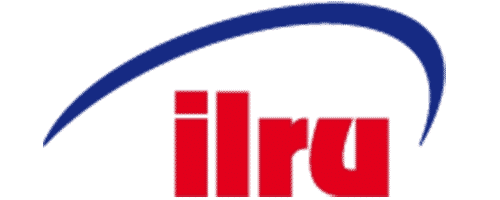
The ILRU (Independent Living Research Utilization) program is a national center for information, training, research, and technical assistance in independent living. Its goal is to expand the body of knowledge in independent living and to improve utilization of results of research programs and demonstration projects in this field. It is a program of TIRR Memorial Hermann, a nationally recognized medical rehabilitation facility for persons with disabilities.
Since ILRU was established in 1977, it has developed a variety of strategies for collecting, synthesizing, and disseminating information related to the field of independent living. ILRU staff–a majority of whom are people with disabilities–serve independent living centers, statewide independent living councils, state and federal rehabilitation agencies, consumer organizations, educational institutions, medical facilities, and other organizations involved in the field, both nationally and internationally.
